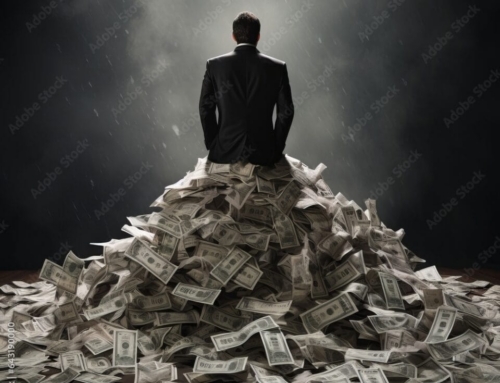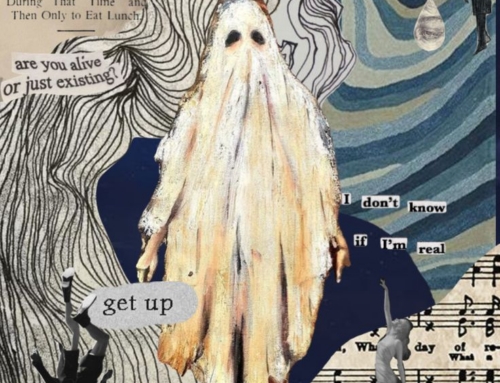The Amazonian Synod and the papacy of Pope Francis are causing many American Catholics to scratch their head and wonder what on earth is going on. Everything they thought the Catholic Church was seems to be shifting. They thought they had built on the solid rock. Now they feel the house is on shifting sands.
There are many complex reasons for the present turmoil. They are rooted in the history of the church, and not just the last fifty years since the Second Vatican Council. Vatican II was itself the result of an age of revolution and transition in society and the church that had been going on for the last 500 years.
The fact of the matter is, the barque of Peter is sailing through very stormy waters right now, and it takes some courage and lots of faith not to get seasick and not to think you must man the lifeboats or jump overboard and swim for shore.
The more we understand what is happening, the more we will be able to put our trust in God and know that Christ will not abandon his bride the church. The way to understand what is happening is to understand both the current trends that are affecting the church and the historical currents that have brought us where we are today.
The reason I produced Triumphs and Tragedies my twenty three part podcast series on the history of the church was so as many people as possible might have an overview of church history and therefore understand where we are today by understanding where we have come from. You can listen to the podcast series here on the blog if you are a Donor Subscriber.
The second part of this is understanding the present trends in society and our wider world in order to understand the pressures on the church today which are helping to create the present upheaval. This is why I produced another podcast series, The Future Church. This ten part series is available here at BreadBox Media. The abridged version of each episode is free at BreadBox. The full length versions are here on the blog for Donor Subscribers.
If you are not yet a Donor Subscriber but would like access to these and all my podcast series, the lowest level of Donor Subscription provides access to all my podcast channels. Go here to learn how to become a Donor Subscriber.
So what are some of the factors which have brought the church to the present state?
First the factors from the past:
- The Epoch of Revolution – I believe church history can be broken down into 500 year segments. The first 500 – the Roman Era. The second 500 – The Dark Ages. The Third 500 – the Middle Ages-Christendom. The Fourth 500 – the Age of Revolution. (This epoch, out of which we are now emerging) began with the Protestant Revolution and went through many forms of revolution, war and upheaveal–politically, economically, sociall, philosophically, theologically and in every way. Christ’s church is now coming through that epoch and we are entering into a new epoch–and we are therefore in the throes of great transition.
- Liberalism and Modernism – During the epoch of revolution the church has battled in one form or another with the spirit of materialism and doubt. The battle has been between those who wish to jettison the supernatural, historic faith for a modern, materialistic religion of good works and simply making the world a better place. For the last five hundred years this theological battle has raged off and one. The current crisis has this same battle still at the heart of it all
- The Rise of Atheism – Beneath the materialistic philosophies of liberalism and modernism is the beast of atheism for materialistic non supernatural religion is simply a false mask of atheism. Atheism became explicit in the threat of Freemasonry and Communism–two ideologies that deliberately set out to destroy the church.
- Global Travel – The beginning of the epoch of revolution also saw the discovery of the new world and travel expanded to Africa, the Far East and eventually around the whole world. This meant that the Catholic faith had to adapt to new cultures, new climates, new people, races and tribes. Evangelization brought great growth, but it also brought great challenges. The Catholic faith was still centered in the old homeland of Europe, but the faith was already changing as it developed in the New World, the Far East and eventually Africa and beyond.
- Scientific Learning – The epoch of revolution also saw rapid advances in scientific learning, technology, health care, education, politics and economics. The Catholic faith was forged in a pre-industrial and technological age. It flowered in the Middle Ages but was rooted in a religion from the ancient Middle East. The question arose, “How do you maintain a stone age religion in a space age world?”
All of these strong currents from the last 500 years have influenced where we are today. Most of us have lived through only the papacies of John Paul II and Benedict XVI. In many ways these two papacies were the end of the age–not only because these two popes saw us through the year 2000 but also because they stood for the old Europe and a Catholic Church that was still Eurocentric.
Now we are moving into a new epoch with new currents that are taking us into the 21st century whether we like it or not. Here are five trends that are affecting our religion–five current trends that are sweeping us along and moving us into a new epoch.
- Globalization – The world is a village now. Everyone can travel around the world and live anywhere. This means we are all coping with multi-culturalism. We are influenced by Hispanics, Africans, Europeans, Middle Eastern, Asians and indigenous peoples. All of us are thrown into the cultural mix whether we like it or not. Sure, we can withdraw into our own little tribal groups, but it won’t do. The mix of cultures and peoples is bringing about a new kind of Catholic Church–one which is truly global. Example: you may have an Indian, African or Asian priest in your parish. You may think this is a temporary solution until the bishop can find an American priest. It is not. There are not enough American priests to go around. The African, Latin American, Asian and Indian church is right here, right now.
- The New Demographic – Already African, Latin American and Asian Catholics outnumber Catholics in the United States and Europe. This demographic trend will continue. Already, numerically speaking, the Catholic Church is no longer centered on Europe and North America. We may think we are the majority because we are richest and still the most influential, but we are not the majority and as the 21st century unfolds we will lose the power and influence we think we deserve. Pope Francis’ papacy from Latin America is a sign of this shift already taking place.
- Committed Catholicism – There are two strong trends in the Church today from a spiritual and liturgical point of view: Pentecostalism and Evangelical Catholicism. The first is fired up with Evangelical zeal, the baptism of the Holy Spirit, signs and wonders, powerful preaching, up to date praise and worship music and a powerful social involvement. The second is Evangelical Catholicism–a more traditionally looking form of Catholicism in style of worship and presentation, but equally committed to the historic faith and a supernatural understanding of religion. Both of these are the strong waves of the 21st century. In the face of these two trends the old style liberalism and modernism–which equates religion with social work and political ideologies will simply fade away.
- Inculturation – As the Catholic faith burgeons in the developing world there will be a continuing challenge on how the Catholic faith can thrive in new and often bizarre cultural settings. The Amazon Synod is making us face this head on. How shall indigenous people in the Amazon express and live out their Catholic faith? How much should African villagers, Indian converts from Hinduism, Vietnamese, Chinese or Korean Catholics simply adopt European ways of being Catholic or how much shall their Catholic faith adopt their own customs and adapt them to Catholicism? How does Catholic doctrine–so much formed by European philosophical and theological models translate to foreign cultures? How do Euro-centric methods of prayer and spirituality fit with other cultures? Do we simply say, “Here is how it is done. This is how you should be Catholic. Do what we have always done?” Christianity’s strength is its adaptability. It travels well, but how much can it change without becoming a different religion altogether?
- Pastoral Relativism – In his new book, Cardinal Sarah calls it “the bleach of relativism” that wipes out all that is beautiful good and true. All of these pressures make relativism in religion seem very attractive. With the pressures from the past the pressures of the present, it will become easier and easier to avoid doctrine which seems inflexible and immobile in favor of pastoral relativism. In other words, the Catholic faith will bend and flex according to the various cultural circumstances and contexts. The temptation is to take a pastoral, practical and therefore utilitarian approach to problems. Solutions will be sought only on practical terms. Those who push for the change will say, “This change is only for this area of the world” or “these flexibilities are only for these particular people in these particular circumstances. We aren’t changing the truth of the Catholic faith, but we’re adapting the application of the truth to different settings. This approach is present more and more in the current papacy, and it is destructive and exactly opposite of what is required. When circumstances and cultures are varied and challenging, that’s when one most needs clear doctrinal and moral teaching.
The study of history makes us realize that the church has always been in the midst of one kind of crisis or another. I encourage you to read more church history or listen to my podcast. You will come to realize that God is working his purpose out in the midst of the crises. His spirit has always been there working in and through the problems–finding new solutions where we least expect them and coming through with a bright future where we could only see a grim forecast.
I believe we are entering a new epoch in the church which will see the completion of the Great Commission. I personally believe there will be a great outpouring of the Holy Spirit bringing multitudes of Muslims to Christ. I think the Asian and African church will rise young and strong. The Africans have not lived through 500 years of religious and philosophical revolution. They still have a strongly supernatural faith. I think the Church of the Middle East will rise again in this epoch as will the church in Eastern Europe. The Church in the Europe and North America will be reduced to a remnant–small but strong–committed and probably persecuted, but tough and resilient for all that.
We are entering a period of transition and change. Buckle your seat belts. It’s going to be a bumpy ride.
But what did you expect when you decided to follow Christ? Did you not hear the words, “I have come to bring fire to the earth and how I wish it were already kindled!”
Did you expect some sort of drawing room religion? A religion of chintz and china tea cups? Were you looking for some sort of comfortable spiritual experience? A religion of safe rules, rubrics and regulations?
The Catholic faith is much more than that. It is a religion that will roll with all these challenges, enter into a rollicking struggle and rise smiling and sweating with victory in its teeth.
Is Peter’s boat in a stormy sea? That happened once before is you remember. They were all very afraid, but then the Lord came walking on the waves and said “Peace be with You”
Then he said, “Step out of that boat and come to me walking on the waves.”
Don’t forget this month is my “Pass the Saturno Membership Drive”. Go here to learn how to be a Donor Subscriber–support the blog and get lots of extra content, benefits and special offers. If you can’t make a monthly commitment and you appreciate the blog and podcasts maybe make a donation using the “Donate” button on the right sidebar. Thanks!







I can think of a few words for what’s going on in the Church, Father, but I don’t think you would allow them to be posted. I probably need to go to confession for even thinking them!